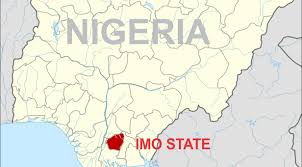Presidential hopeful Peter Obi struck a chord at a recent political event in Abuja where a group gathered to discuss the presidency and south east. He came straight to blame the growing insecurity and terrorism in the nation on high population of unemployed youths. And he added that Nigeria must move from sharing and consuming to producing.
He was not saying anything new. The gamut of leaders who had presided over this country knew it, but lacked the political will to find a solution to it. They all sang it like the parrot in their manifesto but went into Aso Rock to do different things.
Things got to a head when, in 2021, Nigeria’s unemployment rate hit 33.3 percent, the highest in recent times, according to the National Bureau of Statistics. The statistical data made a mess of claims by the present dispensation that they had created jobs for the youths. Managers of the economy were citing N-power, TraderMoni and the like as evidence of their efforts at job creation. That means that they lacked the knowledge of the mechanics of job creation. Our leaders often make mistakes in this field and that is why jobs are nowhere to be found in the country.
From indications, Imo is the hardest hit in matters of unemployment. When former governor of Imo State, Chief Ikedi Ohakim, in 2011, came up with his 10,000 jobs offer to unemployed youths of the state, what he did was not creation of jobs. He simply floated positions in the civil service for offer to the youths, and there was a tinge of politics in the project.
Smart as he was, the former governor had seen the frustration in the younger generation who appeared to have lost faith in the country, seeing it as one that holds no future for them. He cashed in on the situation to bolster his waning popularity as he frenetically pursued his botched second term bid in the 2011 general elections.
Ohakim gave the “jobs” at the dying hours of his first and only term in office as governor. He lost his re-election bid, nonetheless. His successor, Rochas Okorocha, on assumption of office, packed up the jobs and flung them into the trash can audaciously. Then, he went about recruiting young men and women in several security corps that he created, paid them N20,000 each and claimed that he had created jobs.
In rationalizing the mechanics of job creation, we must be drawn to the fact that the capitalist system appears to govern the world economy since the demise of communism in the 1980s. In capitalism, private individuals and business firms carry on the production and exchange of goods and services through a complex network of prices and markets. We may, therefore, reason that the bulk of sustainable employment in an economy lies in the private sector, not in the government creation of white collar positions. The industrial revolution of old in the Western countries, which brought them to Africa in search of market, manpower and raw materials, can give us an idea of job creation.
The beauty of capitalism is the free enterprise and competition it allows, which ultimately add up to improved productivity. It, therefore, brings out the best in individuals. Although it has its bad sides as it breeds crime and corruption, coming from the part of those who cannot stand the fair competition and would want to cut corners, capitalism still remains the only system that elevates people’s standard of living.
Nonetheless, excessive capitalism was discovered as unhealthy for the society as some naturally weak individuals, such as the aged and the sick, could be trampled upon in the rat race for wealth. Responsive and responsible governments, for this reason, introduced some measure of welfarism in the system to make the world go round. It is preferred in this scenario that government acts as a catalyst rather than an actor, providing the necessary infrastructure and regulatory statutes that promote trade and production. The maxim that government has no business doing business obtains in a sane society.
The key word in job creation, as it were, is productivity. If the individual has something to offer, in terms of skill for service or production of needed goods, then he has potentials. In this case, the role of the government remains putting in place an enabling environment to motivate this latent population into producing these needed goods and services. And the process of job creation is complete.
In today’s world, energy, especially in the form of electric power, remains an essential component of job creation. No government can claim to have successfully created sustainable jobs if its electricity supply assumes the pattern of Nigeria. The level of degeneration has been abysmal enough and citizens have cried themselves hoarse. Perhaps, it is time for the government to remove power supply from the exclusive list and bring it to the concurrent list. In the 1970s and ‘80s generators were seen as mere standbys rather than the main supply they are made to be these days. Then, large scale and small scale industries existed and they begged for manpower. This prompted the government to deploy all means possible, including sending many Nigerian youths, outside the country on scholarship to acquire technological and managerial skills, to fill the yawning vacancies in the industries. Then, polytechnic education was made tuition-free and various companies paid annual visits to the institutions to recruit manpower just as the students were dropping their pens after their final examinations.
A flashback to those days evokes sadness as the booming factories of the 70s and 80s have moved to neighbouring countries where there is adequate electricity supply while still exploiting the huge market potentials Nigeria offers them by transporting their finished products into the country through our porous borders. Need we ask why the level of unemployment and under-employment in the country rose to dizzying heights?
Unfortunately, the Ohakim concept is ostensibly the general view of job creation held by some of Nigeria’s so-called leaders. To merely allocate personnel to the bureaucratic setting of government, state or federal, does not constitute creation of jobs because little or no productivity is realized after all. Salaries come from the coffers of government which is fed mainly with crude oil proceeds.
Nigeria’s high unemployment situation became a global concern o he point that former US President, Bill Clinton, who visited the country years back, among other world leaders, stressed on it as the main source of the nation’s woes. Indeed, it is an emergency which demands an immediate reformation of the electricity situation in the country as well as rapid improvement of other infrastructure.
To compound the problem, youths have taken to various unwholesome trades such as internet scam (Yahoo! Yahoo!), and other tricks (419). The more daring ones engage in armed robbery, kidnapping, and ritual money now nickname “Yahoo plus” while the imprudent turn to terrorism and banditry.
Another worrisome development is that some state governments appear to stifle enterprises that are already grappling with inclement business weather, using taxes. Inasmuch as taxes are necessary, the era calls for the pampering and nurturing of enterprises, especially the upcoming ones, so that they grow strong enough to provide the badly needed jobs. More pathetic is the daily maiming of street traders in some cities by taskforce men, even when they do not constitute any menace. Besides, government appears to have lost control of “area boys” who illegally impose their own taxes on businesses, harassing legitimate traders at will.
Employment rate, from economic principles, is sometimes dependent on how much international trade favours a country. Nigeria, perhaps, remains a paradox as the Central Bank could post an all time high foreign reserves figures, yet they appear not to reflect on the employment situation or the standard of living of the people.
The country, from all indications, needs overly altruistic leaders rather than those who believe governance and leadership is to preside over the nation’s oil wealth and show the rest of us how powerful they can be by misusing the common wealth with impunity. The nation needs to recall the vehicle plants in Lagos, Kaduna, Abuja, the textile mills, the tyre manufacturing companies, various food processing industries, among others. We ask, is Obi the leader we are waiting for?
Dr. Odu can be reached at dirimrich2018@gmail.com.









